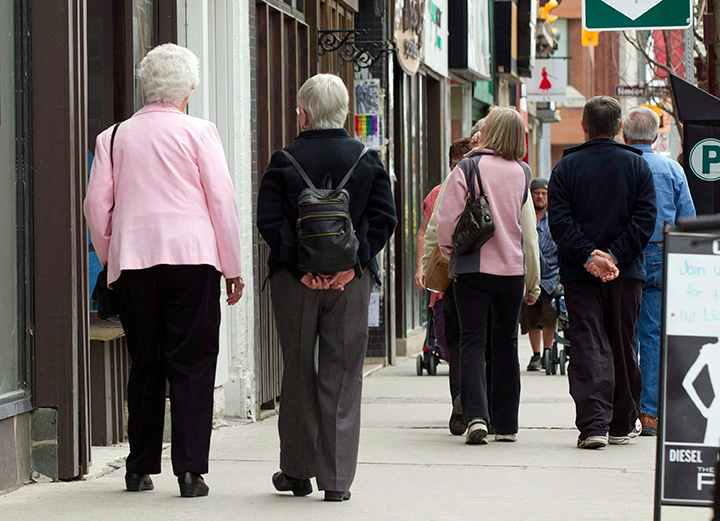The cost of Old Age Security (OAS), Canada’s largest seniors benefit program, is about to skyrocket, according to the latest review by the country’s chief actuary. Recent changes to the Canada Pension Plan introduced by the Liberal government will help curb those expenses a bit – but not by much, said the report.

Total annual OAS expenditures are projected to grow from $49 billion in 2016 to an eye-popping $247 billion by 2060.
READ MORE: Rising old age security spending curtailed by CPP increases: report
The reason why is no mystery. The most recent census figures showed the ranks of seniors grew by the fastest rate in 70 years, with Statistics Canada projecting there could be 12 million seniors by 2061. And those elderly Canadians are expected to live longer, drawing on their retirement benefits for far longer than previous generations.
“All of Canada is going to look like Florida,” where one in four people are currently over the age of 65, said Ian Lee, associate professor at Carleton University’s Sprott School of Business.
Lee routinely warns his students that, once they join the workforce, they’re “going to have to pay through the nose for people like me.”
Some of that is likely inevitable, as declining birth rates mean there will be far fewer workers paying to help support a vast population of baby-boomer retirees.
READ MORE: Census 2016: For the 1st time, more seniors than children living in Canada
But Canada is also “squandering scarce resources,” when it comes to pension benefits, according to Lee.
That’s because virtually every Canadian aged 65 and older is entitled to a pension payment that currently amounts to nearly $584 a month.
Only those with an individual annual income over $121,279 aren’t eligible to receive OAS.
READ MORE: Trudeau Liberals ‘trampling’ on women’s rights with new CPP regime
That threshold is far too high, according to Lee.
“It makes no sense that people like me should receive OAS,” Lee told Global News.
WATCH: Keith Baldrey breaks down what the CPP expansion means for your paycheque and just when these changes will come.

Why not give more money to low-income seniors?
Instead of showering dollars onto high-income retirees, the OAS payments should be channeled toward the poorest Canadian seniors, those making $45,000 a year or less, Lee argued.
In essence, Canada should do away with its universal OAS basic pension and boost the Guaranteed Income Supplement (GIS), a monthly non-taxable benefit that low-income seniors receive on top of their OAS pension, according to Lee.
Tammy Schirle, director of economic research and policy analysis at Wilfrid Laurier University, agrees that OAS could be more targeted.
READ MORE: Canada ‘woefully unprepared’ to deal with senior population surge, Senate committee hears
“There’s a really good argument for removing the universality of OAS,” she told Global News.
The problem with any such reform, however, is that is would require “decades of notice” in order to give Canadians enough time to adapt their retirement savings plans, Schirle noted.
VIDEO: Canadians misinformed on CPP expansion deal, says CFIB

OAS needs a rethink, but eliminating it would be disastrous, economists say
It might be time to reform the OAS pension. But eliminating the OAS program, which includes both the basic pension payment, GIS benefits, and allowances for low-income and widowed seniors, would have serious consequences, both Lee and Schirle told Global News.
OAS is one big reason why Canada has one of the lowest rates of elderly poverty among rich nations, Lee said.
That’s when the GIS benefit became a permanent feature of Canada’s government pension program. The move topped a series of reforms in the late 1960s, including the introduction of the CPP and QPP, as well as the Medical Care Act.
READ MORE: Basic income best way to help families reliably put food on the table: report
“If you remove the OAS program, you should expect low-income rates to skyrocket among seniors,” Schirle said.
Around one-third of seniors currently receive at least some benefit under the GIS.
Eliminating such benefits could raise Canada’s poverty rate among seniors to around 30 per cent, up from only 4.4 per cent in 2015, she said.




Comments